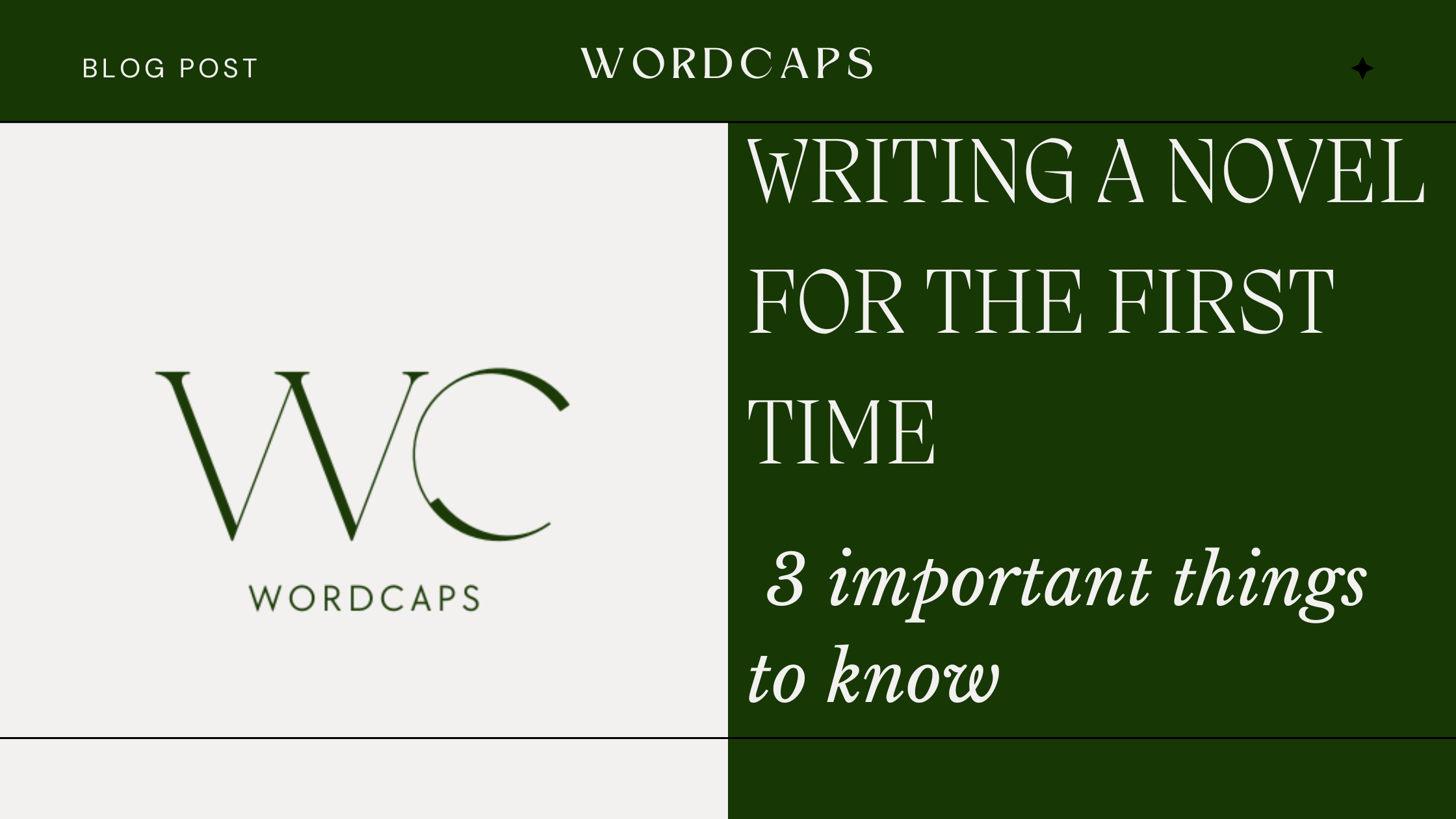Updated: Feb 5, 2024
I often get questions from people trying to write their first novel. They want to know what editing entails, how to self-publish, and how to tell a good story. In this article, I will share three important things I think every beginner writer should know before writing a novel. Even if you’re not a beginner writer, you will find these tips helpful.
First, let me start by saying that while I will try to cover as much ground as possible, you still need to do your own research to discover what works best for your situation.
1. You need to take small steps
Too often, beginner writers try to write a novel before honing their craft. It is best to start on a smaller scale. What do I mean? Write a short story, publish it on a blog, submit it to a magazine, take smaller steps and build your craft before launching into a big project like writing a novel.
In my experience with beginner writers working on novels, the editing process takes longer. This is because the stories require more development. Novel writing requires a honed skill, so taking small steps toward it is crucial.
Novel writing requires a honed skill, so taking small steps toward it is crucial.
Why you should take small steps
- You’ll discover the stories you like to tell and your writing style.
- You can make mistakes on a smaller scale and learn how to write effectively.
- You’ll eliminate unnecessary rewrites and an expensive edit because mastery helps to determine what’s necessary and what’s not.
- Your work can stand out among the rest in a competitive market.
- You’ll be happier because you took your time.
If you’ve just started fiction writing, please give yourself time to grow and take small steps while you’re at it. The Writer’s Digest has interesting articles for beginner writers.
2. Your work needs editing
Please know that your work needs editing, not proofreading. I find that many people don’t understand the intricacies of editing and the work required to make a good novel. Editing is a time-consuming process that ensures your work communicates effectively with the reader and best expresses your ideas. It’s much more than inserting punctuation marks and fixing typos, and your beta reader can’t do the job! Editing is a specialized skill developed over years of practice.
There are different types of editors, and depending on your project, you might need them all to publish your novel.
It’s much more than inserting punctuation marks and fixing typos, and your beta reader can’t do the job! Editing is a specialized skill developed over years of practice.
Types of editing
Structural editing (also known as developmental editing). As the name implies, this editing evaluates the structure of a written piece or proposed idea to ensure it works. Structural editing will identify loopholes in development and areas for improvement. For instance, in fiction writing, it will show what characters need more expansion and if the plot has unbelievable elements. Structural editing is the first stage of editing and precedes book production.
Stylistic editing (also known as line editing). This editing evaluates the coherence of style in a manuscript. The stylistic editor will highlight disparities in characters and their dialogue and tighten wordy sentences.
Copy editing. The copy editor will ensure that a book’s elements align with the style guide. They will check for appropriate spelling, correct grammatical errors, and ensure proper punctuation. A copy editor has a keen eye for details. Copy editing is sometimes done alongside stylistic editing.
Proofreading. The proofreader often does the last editing, ensuring that typos are corrected, missing punctuations are inserted, and other minor details are not overlooked—they catch errors the copy editor may have missed and give the manuscript a clean finish.
Some people often hire proofreaders in place of copy editors or hire copy editors when their work needs a structural editor. Ensure you hire the right editor for your work to get value for your money. In most cases, your novel will require copyediting and proofreading. This page from Editors Canada shares more information about the different types of editors.
3. You need to market your work
Writing your novel is a great accomplishment, but preparing your audience for it is critical. I see too many people putting much effort into writing and neglecting the business side of their art. Then, they’re frustrated when sales are low because the audience is uninterested in or unaware of the publication. Unless you’re simply writing for fun, you should plan to market your work.
Marketing often begins way before the book is published. If bestselling writers work with publicists to spread the word about their books, unknown writers must also connect with their audience.
Social media is a great place to connect with your potential audience. There, you can start to get them interested in you and whet their appetite for your forthcoming work, so you have a ready market after publication. I hear you saying, “But not every writer is on social media!” You’re right; not every writer is. However, if they’re not on social media, they will likely have a strong marketing team getting the word out on their behalf. If you don’t have the financial muscle to do the same, I suggest reaching out to your audience on social media.
Novels are sold by word of mouth. Someone tells another person, who tells another person how awesome your work is. Get your audience talking about your novel, and your investment will be worth it.
Novels are sold by word of mouth. Someone tells another person, who tells another person how awesome your work is.
How to market your work
Have a marketing strategy. Find out where your audience is, how to reach them, and how to get them talking about your book.
Be visible. Readers need to know you exist. Either get on social media or be in spaces where readers converge. Engage your audience; let them know you and develop an interest in your craft.
Post engaging, valuable content. Getting on social media isn’t enough. You need to convince the audience that you’re worth following and your book is worth buying. Being on social media is inconvenient for many writers, but the competition is stiff, with more e-publications flooding the market every day. The more visible you are, the better your chances of making money from your efforts.
Have a mailing list. If social media is really not your thing, emailing your website subscribers might be another way to go. To do this, you will need to create your website and post engaging content that increases its subscription. This can help you to stay in touch with your readers and update them on your forthcoming publication.
Reach out to book bloggers. Find websites where readers visit and ask the site owners if there are opportunities to publicize your novel in an interview. This will introduce you and your book to new audiences, and you get an opportunity to share some insights about writing a novel for the first time!
Finding what works for you is key to maintaining your marketing efforts. This article has more tips on promoting your book.
That’s all for now! I’ll share more tips in another post. Until then, keep growing your craft!
Got a question about writing your novel? Ask me in the comments!
Please subscribe to the newsletter and follow WordCaps on social media (@thewordcaps).
Happy writing!


Published by